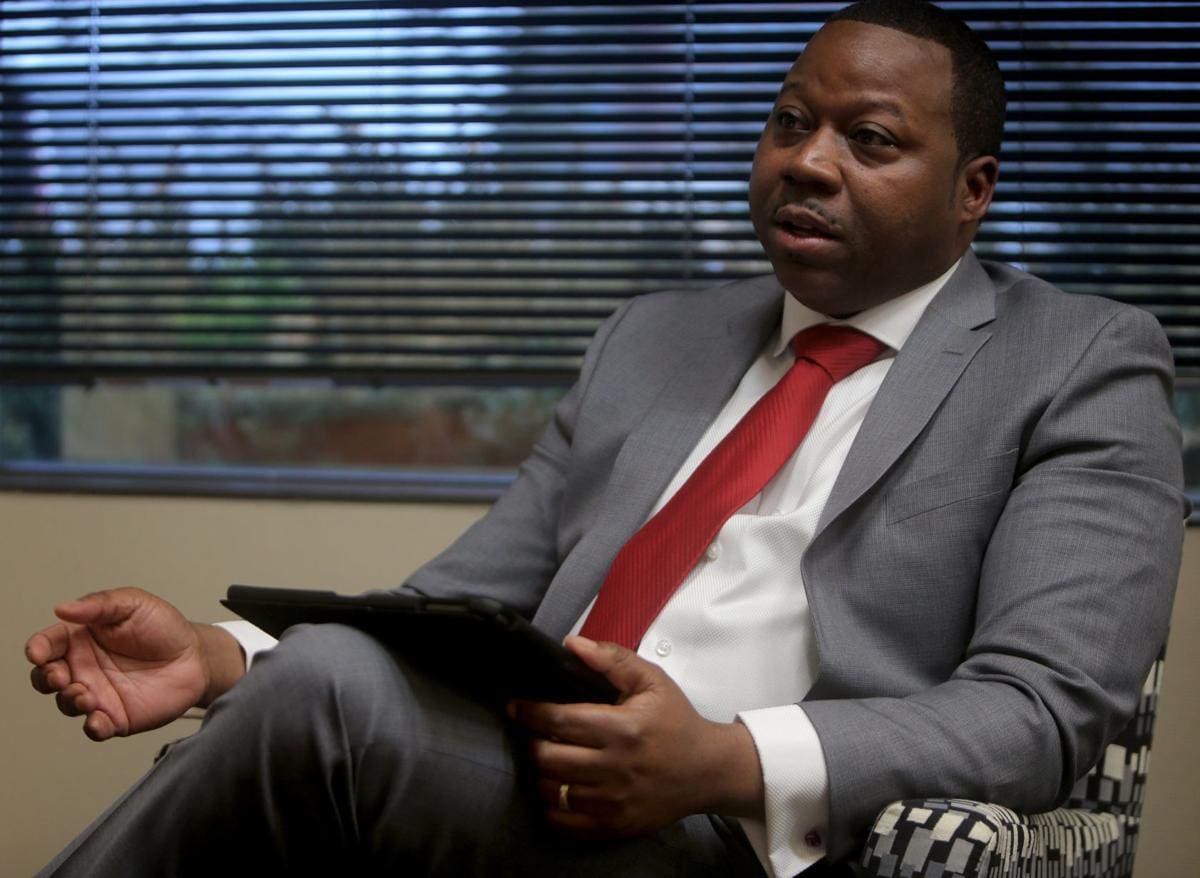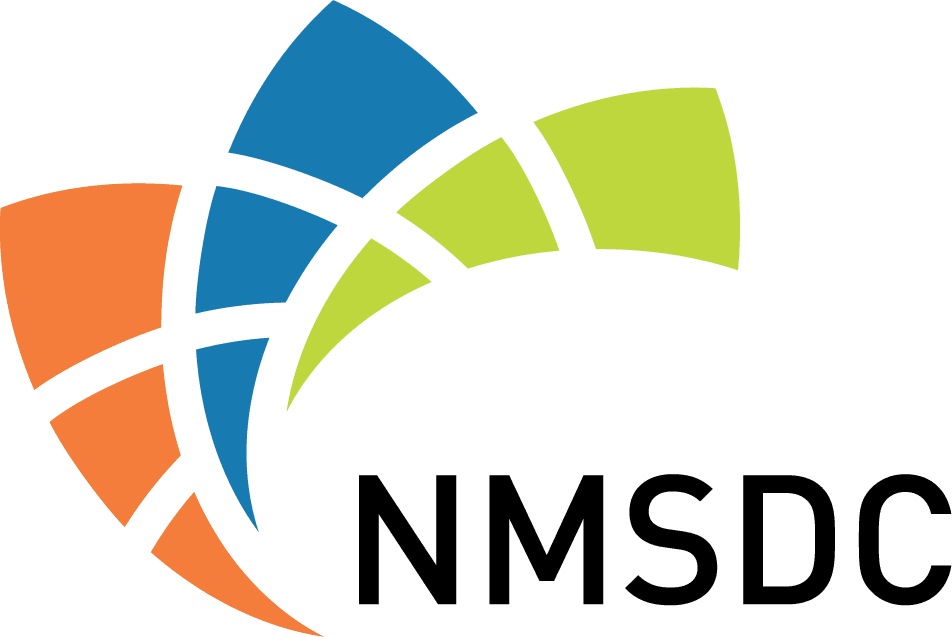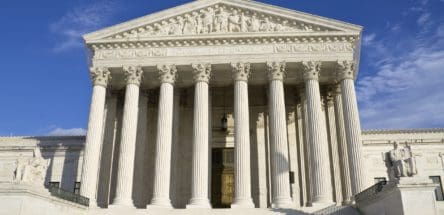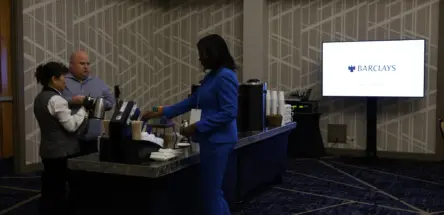
Orvin Kimbrough, CEO of Midwest BankCentre, speaks during an interview on Wednesday, March 13, 2019, in a Chesterfield office.
Photo by Christian Gooden, cgooden@post-dispatch.com
When banker Orvin Kimbrough got a haircut last week, he also gained insight into how small businesses are coping with the coronavirus pandemic.
His barber, an African American woman who owns her shop, mentioned that she had taken out a $5,000 payday loan to pay bills. Kimbrough, the chief executive of Midwest BankCentre, told her she’d be much better off with a Paycheck Protection Program loan from the federal government, and he offered to help her apply.
PPP loans, which are forgivable when used for payroll and other qualified expenses, have helped more than 4.4 million small businesses weather pandemic-related losses. Millions of others, however, have not taken advantage of the program, and that’s especially true of minority-owned firms.
That unmet need, Kimbrough said, is why Midwest BankCentre just signed a deal with a national group to help minority-owned businesses access the PPP.
The National Minority Supplier Development Council approached some giant national banks before council member David Steward, chairman of World Wide Technology, connected the group with Midwest BankCentre.
“I don’t think we were their first choice,” Kimbrough said. “In fact, I know we weren’t. We were simply the first one to say yes to them and map out a process.”
Play Video
The council will launch a campaign to inform minority businesses about the PPP and will accept online applications. Midwest BankCentre will process the applications, make the loans and assign each business owner a relationship manager.
That combination of high tech and high touch made a community bank like Midwest BankCentre the ideal partner, council president Adrienne Trimble said. “It’s not a transactional relationship,” she explained. “It is a strategic partnership working to solve the problems of minority businesses.”
In a survey by civil rights groups Color of Change and UnidosUS, 41% of black and Hispanic business owners who had applied for the PPP said they were rejected, and 21% said they were still waiting for answers.
Congress required the Small Business Administration to prioritize PPP applications from underserved markets, including minority- and women-owned businesses, but the agency’s inspector general said last month that the agency largely ignored that mandate.
The minority supplier council found plenty of frustration among its members. “Many became disappointed and disillusioned,” Trimble said. “They couldn’t get a call back from their own banking institution, and they had gone into survival mode.”
The smallest companies were least likely to have gotten a loan.
“Some of them needed hand-holding,” Trimble said. “The smaller ones didn’t think they would qualify, or they were afraid of taking on a loan if they didn’t understand the rules to have it be forgivable.”
Kimbrough said his barber, who probably will qualify for a PPP loan, is typical of such owners. “It’s those kind of businesses that don’t have the technical sophistication to understand this program,” he said. “I’m personally committed to ensuring that we simplify the process for them.”
The SBA has said about $90 billion remains of the $659 billion authorized for the PPP. Kimbrough, whose bank has lent about $200 million to 1,150 PPP borrowers so far, vows to make sure the remaining money goes to truly needy small businesses.
“Part of our strategy has been to be responsive to those businesses on Main Street that have been the most marginalized,” he said. “This is not new to us. I want that $90 billion to be used and used fast, because that’s a lot of loans.”
Source: St. Louis Post-Dispatch



